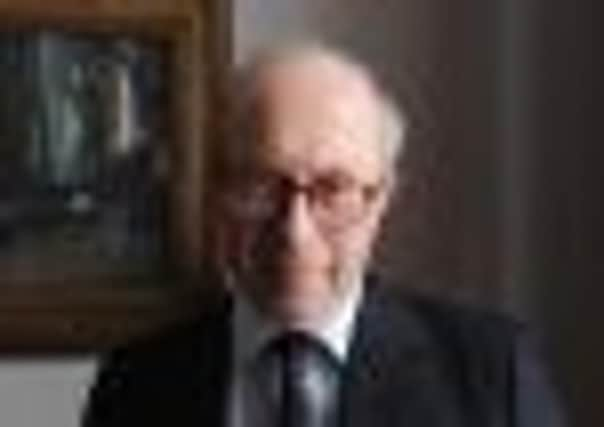Judge attacks ‘anti-English sentiment’ of Scottish courts


Lord Hope, a Scottish judge and deputy president of the Supreme Court, has spoken of an “antipathy” that “lies just below the surface” towards the influence of the London-based court, which considers breaches of European Union human rights laws within the UK, on cases in Scotland.
The senior judge’s comments, in a keynote speech to a legal conference, come after a series of high-profile spats between the SNP government and the Supreme Court earlier this year.
Advertisement
Hide AdAdvertisement
Hide AdFirst Minister Alex Salmond had said court’s power was such that it could “open cell doors and allow people to walk free”, and that it had “no role” in Scotland’s legal system.
But Lord Hope, speaking at the Scottish Association for the Study of Offending, dismissed suggestions by Scottish ministers that the Supreme Court was “interfering” in Scots law, and said that the cases that it dealt with were just the “tiny tip of the iceberg”.
He rejected claims that the London court was a “court of last resort” for Scottish criminal cases, and said that Supreme Court judges had refused leave to appeal in 19 cases since 2009.
Lord Hope said: “You may think too, that the suggestions that the Supreme Court is interfering too frequently have been somewhat exaggerated.”
He quoted remarks made to him by the late Lord Rodger – his former Scottish colleague on the Supreme Court – about a “corrosive anti-English sentiment” in the Scottish legal system during the speech in memory of the law lord, adding that this “sentiment can be a real obstacle to progress”.
Lord Hope said: “There is [in England and Wales] none of the feeling of antipathy towards cases being sent to London that lies just below the surface here in Scotland. This is a phenomenon which occurs whether the case is civil or criminal.”
He said that the Cadder decision from the Supreme Court was a “catalyst” for change, after the ruling that said that Scotland’s legal process would have to be changed to comply with European human rights legislation to allow suspects access to a lawyer while they were being questioned by the police.
Lord Hope made his comments at the same conference in Dunblane this weekend where justice secretary Kenny Mac-Askill was also speaking.
Advertisement
Hide AdAdvertisement
Hide AdMr MacAskill has previously threatened to stop the Scottish Government’s funding of £500,000 a year for the Supreme Court. He told the Dunblane conference he wanted to “safeguard the integrity of Scots criminal law” against an “increasingly intrusive presence by the UK Supreme Court”.
A Scottish Government spokeswoman said that ministers had asked High Court judge Lord McCluskey and “a hugely distinguished review group to produce a constructive solution to the contro- versies arising from a number of cases”.